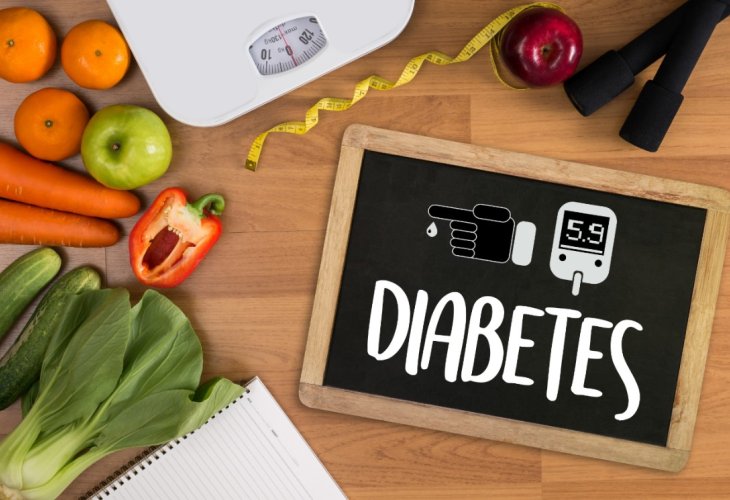Diabetic Passover: How to Maintain a Healthy Weight and Stay Balanced?
How to maintain your weight amidst the family meals rich in fats and carbohydrates during Passover? And how to come out of the holiday satisfied?
 (Photo: shutterstock)
(Photo: shutterstock)Passover presents a significant challenge for people with diabetes. A week packed with family meals and special traditional foods often leads many of us to deviate from our usual diet and eat more than usual. On average, people spend 12 hours in family meals during the holiday and gain about 3 kg..
Even before the holiday, it's important to set personal goals regarding nutrition and physical activity. Set realistic goals to successfully achieve them and return to routine swiftly after the holiday.
For example, for people in a weight loss journey, it will be challenging to continue losing weight at the usual pace due to the significant changes in meal order and composition this week. Therefore, the goal could be to maintain the current weight (and not gain) throughout the holiday.
After setting your weight goal, make additional decisions about what to eat at the holiday feast. Everyone has favorite foods they can't do without, but there are others that can be easily skipped. Therefore, decide in advance what to eat and what not to eat, which foods will provide the best value in terms of calories and/or carbohydrates. Advance planning helps us arrive calm and prepared for the meal and not falter at the moment of truth.
Additionally, plan physical activity ahead of the holiday. Half an hour a day (or more) dedicated to walking or another enjoyable activity helps maintain weight and sugar balance. Physical activity can also help reduce unpleasant feelings such as stress, depression, and anxiety that accompany many during holiday times.
Tips for Making Smart Choices at Holiday Meals
- Define the amount of carbohydrates to consume at the meal: This is crucial for anyone with diabetes or prediabetes, as carbohydrates have the most significant impact on blood sugar levels. It is recommended to limit the carbohydrate intake to 3-4 servings (45-60 grams of carbohydrates, with 15 grams per serving) and preferably up to 2 servings of carbohydrates (30 grams of carbohydrates). During Passover, this can be particularly challenging since many foods contain carbohydrates, like matzah, charoset, kneidlach, etc. (details in the table).
- Consume small amounts of everything: Some people prefer to completely avoid certain foods (for example, deciding not to eat any carbohydrates at the meal, except for matzah), while others prefer to have a small portion of everything. From past experience, you probably know what's better for you to stay within the calorie and/or carbohydrate framework you've set for yourself.
The holiday meal offers many options, and you don't have to try everything. Select what you've decided in advance, and enjoy the unique holiday foods rather than the regular ones available all year round. - Start with soup and salad as an appetizer: Vegetables contribute to a sense of fullness, helping to reduce the quantities consumed in the main course. Prepare as many healthy options of salads and cooked vegetables as possible. Choose salads without added fruits, dried fruits, nuts, and high-fat dressings, to avoid unnecessary calories and carbohydrates.
- Use healthier cooking methods: Boiling, steaming, baking, or grilling use much less oil (if any) compared to frying. From any recipe, it's possible to significantly reduce the amount of fats or oils without sacrificing taste.
- Be mindful of beverages: Like throughout the year, the best choice is water or soda. If you must have sweet drinks, opt for diet drinks and avoid sugar-sweetened beverages, including grape juice.
If you drink wine, choose dry wine, which contains fewer carbohydrates compared to sweet wine.
For those treated with insulin or medications stimulating insulin secretion from the pancreas, it's crucial to know that carbohydrates from wine are not included in the total carbohydrate count for the meal. This is because wine also contains alcohol, which can lower blood sugar levels, even several hours after the meal. Therefore, check blood sugar levels after the meal and before bedtime, and consume carbohydrates if necessary, to prevent hypoglycemia during the night. Nowadays, there are continuous glucose monitoring devices available for short or long periods, allowing you to check blood sugar levels without pricking several times a day, thus getting a complete picture of sugar trends at night. - Avoid snacking: Nuts and other snacks offered before and after meals indeed have healthy fats, but they also contain 500-600 calories per 100 grams. In social settings, there's a tendency to snack even when not hungry, knowing a meal is approaching. Avoid snacking between meals to prevent overeating. Distance yourself from snacks – initially, avoid sitting near them and find other activities like helping to serve and clear the table.
- Feel good: Remember that enjoying food is an important goal and that you can eat the appropriate amount for you and finish the meal feeling satisfactorily full without feeling your stomach is "stuffed" and without guilt.
Calories and Carbohydrates in Holiday Foods:
| Energy (kcal) | Carbohydrates (grams) |
Matzah | 140 | 30 |
Light Matzah | 70 | 15 |
Three Small Kneidlach | 80-150 (depends on size) | 15-20 |
Gefilte Fish | 80 (depends on size) | 7 |
Tablespoon of Charoset | 50-60 | 15 |
Two Tablespoons of Matzah Flour | 65 | 15 |
Dr. Michal Gilon Keren is a clinical dietitian at the DMC Center for Diabetes and Obesity Treatment.

